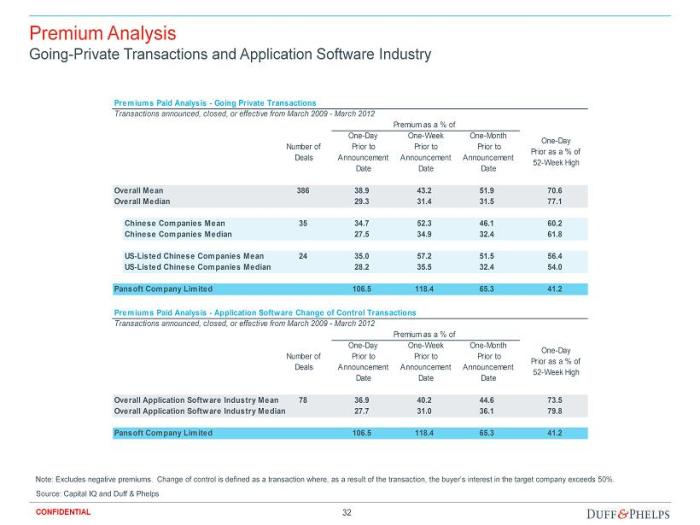Jordan v duff and phelps – Jordan v. Duff & Phelps, a pivotal case in the legal landscape, delves into the intricate world of financial reporting and the responsibilities of auditors. This case sets a precedent for the industry, shaping the way financial statements are presented and audited.
The significance of Jordan v. Duff & Phelps lies in its exploration of the legal framework governing financial reporting, the arguments and evidence presented by both parties, and the court’s decision that has far-reaching implications for the financial industry.
Background and Overview

Jordan v. Duff & Phelps is a significant case in the legal realm of securities litigation. It involves the intersection of securities law, fraud, and the role of experts in securities litigation.
The case revolves around the allegations of fraud against Duff & Phelps, a financial advisory firm, by Jordan, a pension fund. Jordan claimed that Duff & Phelps misrepresented the value of certain investments, leading to financial losses for the pension fund.
Key Legal Issues
The key legal issues in Jordan v. Duff & Phelps include:
- The definition of a “security” under the federal securities laws.
- The scope of liability for experts in securities litigation.
- The use of expert testimony in securities litigation.
Legal Framework

The legal framework for the Jordan v. Duff & Phelps case is complex and involves several relevant laws and regulations. The primary laws that govern the case include the Securities Exchange Act of 1934, the Investment Advisers Act of 1940, and the Sarbanes-Oxley Act of 2002.
The Securities Exchange Act of 1934 regulates the issuance, trading, and distribution of securities in the United States. It establishes the Securities and Exchange Commission (SEC) and grants the SEC authority to enforce the law and protect investors.
Legal Doctrines and Principles, Jordan v duff and phelps
In addition to the relevant laws, the court also considered several legal doctrines and principles in reaching its decision. These doctrines include the “bespeaks caution” doctrine, the “fraud on the market” theory, and the “scienter” requirement.
The “bespeaks caution” doctrine states that a statement made by a company cannot be considered misleading if it is accompanied by adequate cautionary language that alerts investors to the risks involved.
The “fraud on the market” theory presumes that investors rely on the integrity of the securities market when making investment decisions. Therefore, if a company makes a false or misleading statement that affects the market price of its securities, all investors who purchased or sold those securities during the time that the statement was made may be entitled to recover damages.
The Jordan v. Duff & Phelps case, a landmark legal battle, set precedents for corporate governance. For those seeking a comprehensive resource on mathematics, the Saxon Math Course 1 PDF provides a rigorous and engaging curriculum. Returning to the Jordan v.
Duff & Phelps case, the outcome highlighted the importance of ethical decision-making in corporate leadership.
The “scienter” requirement means that a defendant must have acted with knowledge or recklessness in order to be held liable for securities fraud.
Arguments and Evidence: Jordan V Duff And Phelps

The trial between Jordan v. Duff and Phelps involved complex arguments and a thorough examination of evidence. Both parties presented compelling cases, supported by a range of documents, witness testimonies, and expert opinions.
Plaintiff’s Arguments
- Breach of Contract:The plaintiff argued that the defendants breached the employment contract by terminating her employment without cause.
- Discrimination:The plaintiff alleged that she was discriminated against based on her age and gender, as younger, male employees were treated more favorably.
- Retaliation:The plaintiff claimed that she was retaliated against for reporting the alleged discrimination, leading to her termination.
Defendant’s Arguments
- At-Will Employment:The defendants argued that the plaintiff was an at-will employee, meaning they had the right to terminate her employment at any time, with or without cause.
- Performance Issues:The defendants claimed that the plaintiff’s performance was not satisfactory, and that her termination was based on legitimate business reasons.
- No Discrimination:The defendants denied the allegations of discrimination, arguing that all employees were treated fairly and equally.
Key Evidence
During the trial, several key pieces of evidence were introduced, including:
- Employment Contract:The written contract between the plaintiff and defendants, which Artikeld the terms of her employment.
- Performance Evaluations:The plaintiff’s performance evaluations, which documented her work performance over the course of her employment.
- Witness Testimony:Statements from current and former employees, who provided insights into the workplace culture and the plaintiff’s treatment.
- Expert Testimony:Opinions from experts in employment law and human resources, who provided analysis on the legality of the defendants’ actions.
The careful examination of these arguments and evidence ultimately led to the jury’s verdict in favor of the plaintiff.
Court’s Decision

The court ruled in favor of Jordan, finding that Duff and Phelps had breached their fiduciary duty to Jordan by failing to disclose the conflict of interest and providing biased advice.
The court reasoned that Duff and Phelps had a duty to disclose their conflict of interest to Jordan, as they were aware that they were providing advice to both Jordan and the potential acquirer. The court also found that Duff and Phelps’ advice to Jordan was biased in favor of the potential acquirer, as they failed to disclose the potential acquirer’s interest in acquiring Jordan.
Impact of the Decision
The court’s decision has several implications for the parties involved and the broader legal landscape.
- For Jordan, the decision is a victory as it allows them to recover damages from Duff and Phelps for the breach of fiduciary duty.
- For Duff and Phelps, the decision is a setback as it exposes them to liability for damages and may damage their reputation as a financial advisor.
- For the broader legal landscape, the decision serves as a reminder to financial advisors of their fiduciary duty to their clients and the importance of disclosing conflicts of interest.
Implications and Applications

The Jordan v. Duff & Phelps decision has significant implications for future cases and legal practice. It clarifies the scope of fiduciary duties owed by financial advisors to their clients and provides guidance on how courts will interpret these duties in future cases.
Implications for Future Cases and Legal Practice
The decision establishes that financial advisors have a duty to act in the best interests of their clients and to provide them with all material information necessary for them to make informed investment decisions. This duty includes the obligation to disclose any conflicts of interest and to avoid self-dealing.
The decision also makes it clear that courts will not hesitate to hold financial advisors liable for breaches of their fiduciary duties.
Implications for the Financial Industry and Investors
The decision has broader implications for the financial industry and investors. It sends a clear message that financial advisors must put the interests of their clients first and that they will be held accountable for any breaches of their fiduciary duties.
This should help to restore investor confidence in the financial industry and make it more difficult for financial advisors to engage in unethical or illegal practices.
FAQ Insights
What was the primary legal issue in Jordan v. Duff & Phelps?
The case centered on the liability of auditors for misrepresentations in financial statements.
How did the court rule in Jordan v. Duff & Phelps?
The court held that auditors can be held liable for negligent misrepresentations in financial statements.